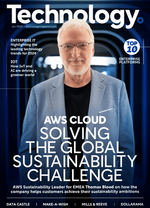The technology strategies for 2024

The past year in technology has been marked by rapid advancements, from incredible developments in generative AI (gen AI) to advances in quantum computing. As we venture into this new year, we highlight the trends that promise to reshape industries, economies and daily life.
As identified by Gartner, there are a number of strategic technology trends that organisations need to explore in 2024. “Technology disruptions and socioeconomic uncertainties require a willingness to act boldly and strategically enhance resilience over ad hoc responses,” said Bart Willemsen, VP Analyst at Gartner. “IT leaders are in a unique position to strategically lay down a roadmap where technology investments help their business's sustenance of success amidst these uncertainties and pressures.”
“They and other executives must evaluate the impacts and benefits of strategic technology trends, but this is no small task given the increasing rate of technological innovation,” said Chris Howard, Distinguished VP Analyst and Gartner’s Chief of Research. “For example, generative and other types of AI offer new opportunities and drive several trends. But deriving business value from the durable use of AI requires a disciplined approach to widespread adoption along with attention to the risks.”
From the democratisation of gen AI to sustainable technology and industry cloud platforms, Technology Magazine highlights Gartner’s 10 technology trends for the next year.
Democratising generative AI
By 2026, Gartner predicts that over 80% of enterprises will have used gen AI APIs and models and/or deployed gen AI-enabled applications in production environments: an increase from less than 5% in early 2023.
The democratisation of gen AI, Gartner says, will make vast sources of information accessible to business users, significantly expanding knowledge and skills within enterprises.
According to a report by the Massachusetts Institute of Technology, gen AI and large language models (LLMs) are democratising access to AI, finally sparking the beginnings of truly enterprise-wide AI. “Generative AI is driving disruption across every industry and CIOs recognise that leveraging AI is no longer a nice to have, but is imperative to remain competitive,” comments Matei Zaharia, Co-Founder and Chief Technology Officer at Databricks, and Associate Professor of Computer Science, University of California, Berkeley.
AI trust, risk and security management
With the widespread accessibility of AI, the need for AI Trust, Risk, and Security Management (TRiSM) has become more urgent. Without guardrails, AI models can rapidly generate compounding negative effects that spin out of control, overshadowing any positive performance and societal gains that AI enables.
Gartner predicts that, by 2026, enterprises applying AI TRiSM controls will significantly improve decision-making accuracy by eliminating faulty and illegitimate information.
“CISOs can’t let AI control their organisation,” Mark Horvath, VP Analyst at Gartner said at the Gartner Security & Risk Management Summit in London in September. “AI requires new forms of TRiSM that conventional controls don’t provide.”
AI-augmented development
According to Gartner, AI-assisted software engineering improves developer productivity and enables development teams to address the increasing demand for software to run the business. These AI-infused development tools allow software engineers to spend less time writing code, so they can spend more time on more strategic activities such as the design and composition of compelling business applications.
Intelligent applications
Intelligent applications include intelligence — which Gartner defines as learned adaptation to respond appropriately and autonomously — as a capability. This intelligence can be utilised in many use cases to better augment or automate work. As a foundational capability, intelligence in applications comprises various AI-based services, such as machine learning, vector stores and connected data.
Twenty-six per cent of CEOs in the 2023 Gartner CEO and Senior Business Executive Survey cited the talent shortage as the most damaging risk for their organisation. Attracting and retaining talent is CEOs’ top workforce priority, while AI was named the technology that will most significantly impact their industries over the next three years.
Augmented-connected workforce
The augmented-connected workforce (ACWF) is a strategy for optimising the value derived from human workers. The need to accelerate and scale talent is driving the ACWF trend.
The ACWF uses intelligent applications and workforce analytics to provide everyday context and guidance to support the workforce’s experience, well-being, and ability to develop its skills. At the same time, the ACWF drives business results and positive impact for key stakeholders.
Through 2027, 25% of CIOs will use augmented-connected workforce initiatives to reduce time to competency by 50% for key roles.
Continuous threat exposure management
Continuous threat exposure management (CTEM) is a pragmatic and systemic approach that allows organisations to evaluate the accessibility, exposure and exploitability of an enterprise’s digital and physical assets continually and consistently. Aligning CTEM assessment and remediation scopes with threat vectors or business projects, rather than an infrastructure component, surfaces not only the vulnerabilities but also unpatchable threats.
By 2026, Gartner predicts that organisations prioritising their security investments based on a CTEM program will realise a two-thirds reduction in breaches.
Machine customers
Also called 'custobots', Gartner describes machine customers as nonhuman economic actors that can “autonomously negotiate and purchase goods and services in exchange for payment”. By 2028, it predicts 15 billion connected products will exist with the potential to behave as customers, with billions more to follow in the coming years. This growth trend will be the source of trillions of dollars in revenues by 2030 and eventually become more significant than the arrival of digital commerce.
Sustainable technology
The use of technologies such as AI, cryptocurrency, IoT and cloud computing is driving concern about the related energy consumption and environmental impacts. Gartner predicts that by 2027, 25% of CIOs will see their personal compensation linked to their sustainable technology impact.
Platform engineering
Platform engineering is the discipline of building and operating self-service internal development platforms. Each platform is a layer, created and maintained by a dedicated product team, designed to support the needs of its users by interfacing with tools and processes. The goal of platform engineering is to optimise productivity, the user experience and accelerate delivery of business value.
Industry cloud platforms
By 2027, Gartner predicts more than 70% of enterprises will use industry cloud platforms (ICPs) to accelerate their business initiatives, up from less than 15% in 2023. ICPs address industry-relevant business outcomes by combining underlying SaaS, PaaS and IaaS services into a whole product offering with composable capabilities. These typically include an industry data fabric, a library of packaged business capabilities, composition tools and other platform innovations. ICPs are tailored cloud proposals specific to an industry and can further be tailored to an organisation’s needs.
**************
Make sure you check out the latest edition of Technology Magazine and also sign up to our global conference series - Tech & AI LIVE 2024
**************
Technology Magazine is a BizClik brand
- Gartner: AI ambition & readiness must be prioritised by CIOsAI & Machine Learning
- Top 10 Consulting Firms Powering the World of TechnologyDigital Transformation
- Ivanti: A Leader in the 2021 Gartner Magic QuadrantEnterprise IT
- Gartner name key technology trends spurring vast innovationDigital Transformation







